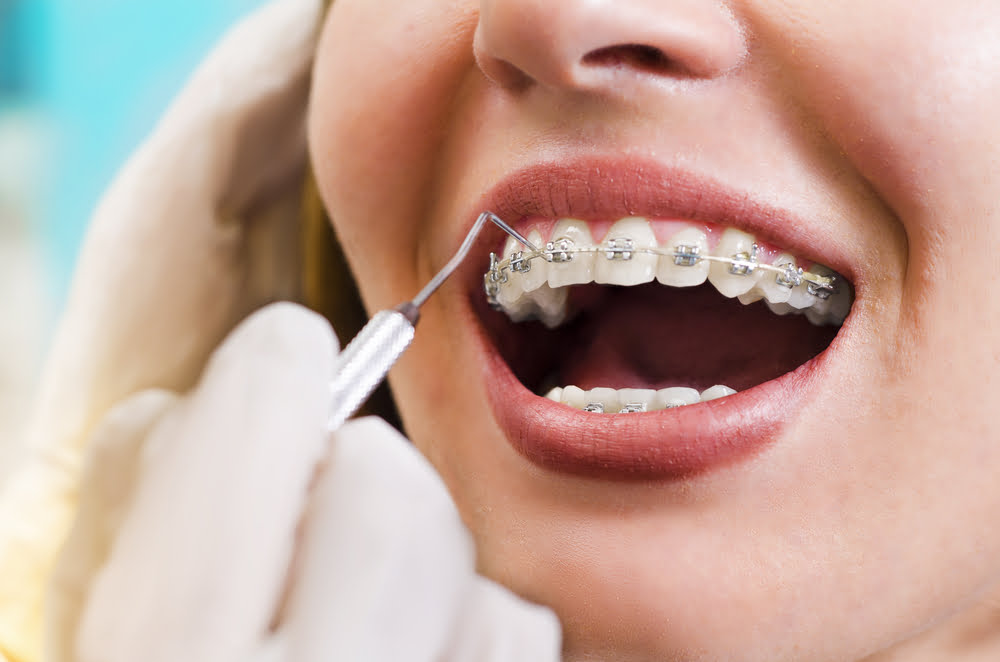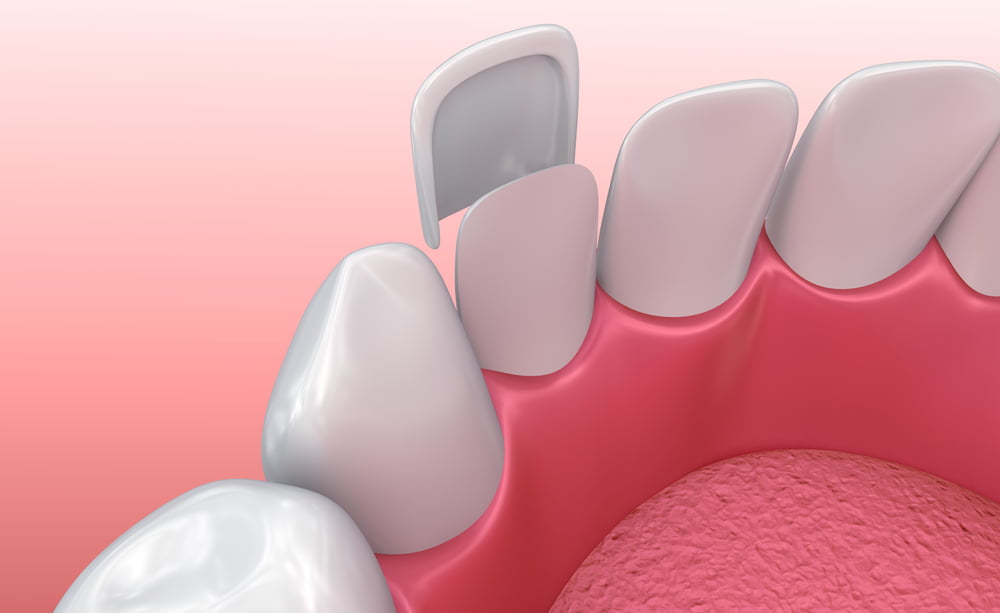Veneers and Lumineers are cosmetic dental procedures aimed at achieving a beautiful, attractive smile, similar to the “Hollywood smile,” while improving the appearance and color of the teeth. Here’s the answer to your question: What is the difference between Veneers and Lumineers?
What Are Veneers?
Dental veneers are thin layers made of porcelain, composite resin, or other strong ceramic materials that are bright white in color. They are custom-made in specialized labs according to specific standards and vary from person to person based on their condition. Veneers are typically at least 0.3 mm thick. They are placed on the front surface of the teeth to address aesthetic issues, and despite their thinness, they become very strong and durable once applied.
What Are Lumineers?
Lumineers are a special type of veneer, consisting of an ultra-thin layer, thinner than traditional veneers, made from transparent porcelain—similar to contact lenses—applied to the tooth’s surface. Their thickness is about 0.1 mm. These shells eliminate problems like stains and yellowing, and are resistant to scratching, cracking, or chipping.
Similarities Between Veneers and Lumineers:
- Both are used to fill gaps and cover spaces between teeth.
- Both are made from very strong materials that appear very natural on your teeth.
- Both are used to improve the appearance and color of the teeth. However, Lumineers are a more advanced version of veneers due to their durability and strength.
- Both contribute to a stunning and attractive smile, providing a very natural look for your teeth.
- Both are used for cosmetic dental purposes, but veneers are more challenging to manufacture and apply, requiring more skill and expertise from the dentist to shape and sculpt them.
Which is Better: Veneers or Lumineers?
To determine which is better, we need to understand the individual benefits of each.
Advantages of Veneers:
- They can last for many years with proper care and maintenance.
- No need to take any medications or painkillers after application.
- Veneers are strong and help conceal most dental flaws.
- They do not cause any gum sensitivity.
Advantages of Lumineers:
- Painless.
- Teeth remain white for a long time, giving an attractive appearance.
- Lumineers require less enamel removal, thus preserving more of the tooth enamel compared to veneers.
- They are less likely to cause tooth sensitivity compared to veneers.
How to Choose Between Veneers and Lumineers:
Knowing the disadvantages of both veneers and Lumineers can help in making a choice, especially after understanding their respective benefits.
Disadvantages of Veneers:
- Veneers do not strengthen teeth and may cause enamel erosion due to the removal of a layer from the tooth, which may lead to breakage in weak teeth.
- They increase tooth sensitivity due to the significant enamel removal, making them prone to damage and detachment.
- They may expose teeth to erosion and increase the risk of breakage in weak teeth.
- Poor application can lead to the accumulation of bacteria and germs.
Disadvantages of Lumineers:
- May increase tartar build-up, leading to gum disease.
- In some cases, they can enlarge the size of the teeth, despite their thinness, as they are applied directly to the teeth.
- They may not completely conceal dark stains due to their thinness.
- Poor application of Lumineers can lead to gum inflammation, so it requires a highly skilled and experienced dentist.
In Summary:
The dentist determines whether to use Veneers or Lumineers based on the condition of the teeth and the nature of the mouth, as both have their pros and cons. In either case, regular visits to the dentist for check-ups are essential.
Finally, it’s important to remember that achieving a beautiful smile doesn’t mean neglecting oral hygiene.
FAQ
What is the cost of dental veneers?
You can contact customer service via email or phone numbers to learn more.
How to care for dental veneers?
- Maintain Proper oral hygiene.
- Refrain from Clenching and Grinding Your Teeth and Chewing Hard Foods
- Regular Dental Examinations
- Reduce Food that Stains and Smoking
- Apply fluoride toothpaste and a soft toothbrush.
Do dental veneers require prior procedures?
For the majority of patients, some kind of dental treatment is necessary before veneer placement. Prior to treatment, a thorough cleaning may be all that is required if your dental health is excellent and there is no decay. Before proceeding with veneers, we will address any underlying oral health concerns you may have, like dental decay, gum disease, or pain.
Veneers last longer if your teeth are in better condition prior to their placement.
Are there any complications or risks associated with dental veneers?
Dental veneers have some side effects, just like any other dental repair. However, the majority of these adverse effects are manageable and treatable, so you shouldn’t be concerned.
Can I change the color of dental veneers after installation?
you will need to see your dentist. With professional cleaning, the porcelain glaze on your veneers may be restored to give them a whole new look.
Sometimes veneer discoloration is just too severe to be repaired by washing. Your veneers will need to be replaced by your dentist in such case.




